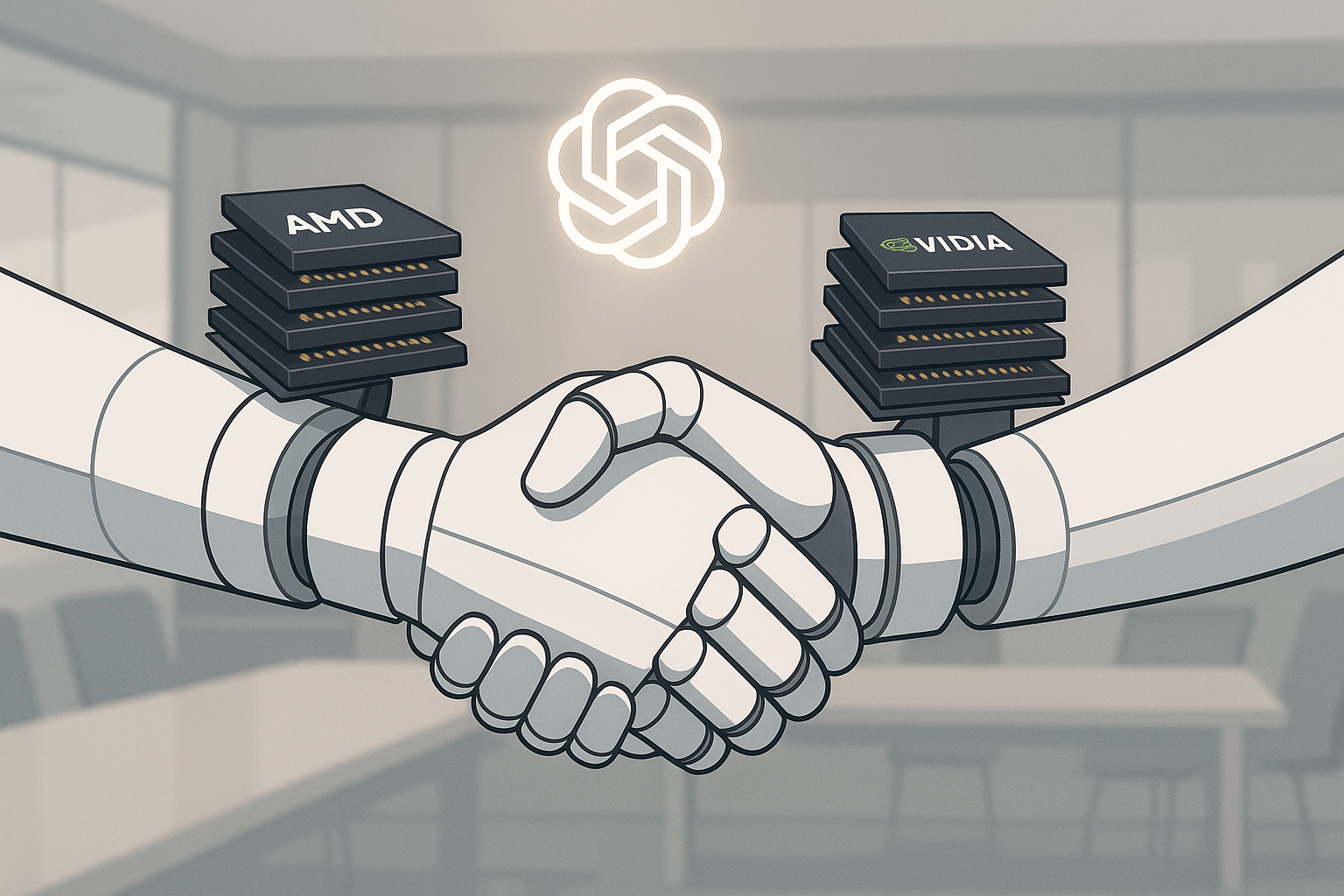In a move that has semiconductor insiders buzzing, OpenAI has just placed a massive bet on AMD chips—roughly 6 gigawatts worth of computing power. And yes, that's enough juice to power the entire nation of Singapore. Makes you wonder if we should start measuring AI capabilities in "countries powered" instead of petaflops, doesn't it?
The timing here is nothing short of fascinating. Just two weeks after cozying up to Nvidia with a reported $100 billion investment, OpenAI's sudden AMD embrace reveals something we've all suspected: Sam Altman isn't putting all his eggs in Jensen Huang's basket.
Let's break down what's actually happening. This isn't just a purchase order—it's financial engineering disguised as a tech deal.
The structure goes something like this: OpenAI gets a mountain of AMD chips (estimated at roughly $200 billion worth over time), while also securing warrants to acquire up to 10% of AMD for the laughable price of $0.01 per share. There's a catch, though. The warrants only vest if certain share price targets are hit and if OpenAI actually deploys the chips.
It's brilliantly crafty when you think about it.
For OpenAI, this accomplishes several things at once. First, it diversifies their chip supply—a lesson every procurement officer learns eventually. Second, it creates leverage against Nvidia (nothing motivates competitive pricing like watching your biggest customer dance with your archrival). And third—perhaps most cleverly—it aligns AMD's success with OpenAI's future.
I've covered tech deals since the cloud computing wars, and this one has a different flavor. It's not just about securing components; it's about creating a financial feedback loop where AMD's success becomes OpenAI's success and vice versa.
From AMD's perspective, this is essentially a golden ticket. After years of playing second fiddle to Nvidia in the AI acceleration market, they've just received the industry's most coveted endorsement. Lisa Su must be doing cartwheels in the boardroom (metaphorically speaking, I assume).
But here's what makes this truly interesting—the warrant structure.
By tying equity acquisition to performance metrics, OpenAI has essentially created a performance-based investment vehicle. If AMD's stock rises because their chips become the new darlings of the AI world, OpenAI gets to buy a substantial chunk of the company for pennies. Talk about having your cake and eating it too.
(Side note: Remember when tech companies just, you know, bought things from each other without these Byzantine financial arrangements? Those were simpler times.)
The move positions OpenAI as something we haven't quite seen before—a company that's simultaneously a customer, a technology partner, and potentially a major shareholder of its suppliers. It's vertical integration without actually integrating. Or maybe it's horizontal leverage. Whatever it is, traditional business school frameworks don't quite capture it.
The broader implications here stretch beyond just OpenAI and AMD. This signals the beginning of a new phase in the AI arms race, where compute access becomes the critical bottleneck and controlling that bottleneck becomes existential.
Will Nvidia respond? Almost certainly. Jensen Huang didn't build his leather jacket empire by sitting back while competitors stole his thunder.
Could Intel be OpenAI's next dance partner? Possibly, though their AI acceleration credentials remain unproven at the highest levels.
What's becoming increasingly clear is that OpenAI is playing 4D chess while most companies are still figuring out the rules of checkers. By spreading its bets across multiple chip suppliers, creating financial incentives, and positioning itself at the center of the AI compute universe, OpenAI is building something that looks less like a customer-vendor relationship and more like a semiconductor kingmaking operation.
For the rest of the tech industry watching from the sidelines, the message is unmistakable: in the new world order of AI, those who control compute access control everything else.
And Sam Altman, it seems, is determined to be that controller.
